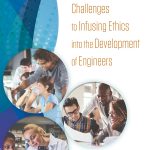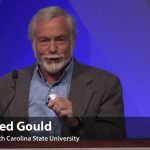
NASEM Sackler SciComm: The promise and perils of gene drives
In November of 2017, an interdisciplinary panel discussed the complexities of gene drive applications as part of the third Sackler Colloquium on “The Science of Science Communication.” This paper builds on the ideas and conversations from the session to provide a more nuanced discussion about the context surrounding responsible communication and decision-making for cases of post-normal science. Deciding to use gene drives to control and suppress pests will involve more than a technical assessment of the risks involved, and responsible decision-making regarding their use will require concerted efforts from multiple actors....Continue reading "NASEM Sackler SciComm: The promise and perils of gene drives"
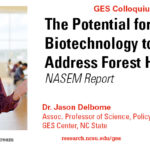
GES Colloquium | Jason Delborne: The Potential for Biotechnology to Address Forest Health
GES Colloquium, 2/19/18 - Jason Delborne | In 2018, the National Academies of Sciences, Engineering, and Medicine formed a committee of experts to explore the potential for biotechnology to address forest health. The committee focused on threats to forest health from pests and pathogens and considered challenges and opportunities of biotech trees (genetically engineered or gene-edited) as solutions. NASEM released this report in January 2019, and Jason participated in the public release of this report in Washington, DC and a session at the AAAS annual meeting to summarize findings of the report....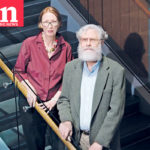
Gould quoted in C&EN: Building bioethics into the future of life sciences innovation
Scientists who refuse to engage with ethicists and the public will find themselves at a disadvantage. “Just because you are a scientist and have invented something doesn’t mean you have authority over it,” says Fred Gould, an entomologist and co-director of the Genetic Engineering & Society Center at North Carolina State University. He points to the National Academies report’s advocacy of participatory decision-making. Resistance from the science community based on ethicists and the public not fully understanding the science wears thin, he says. “You are a pretty poor scientist if you can’t explain what these things are about to an ethicist,” he says....
NBC News – Gould: Exposure levels determine toxicity of glyphosate
“With all things, it is the level of exposure that matters,” said Fred Gould, head of the Genetic Engineering and Society Center at North Carolina State University. “The poison is in the concentration.”...Continue reading "NBC News – Gould: Exposure levels determine toxicity of glyphosate"
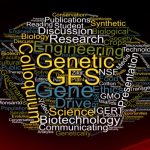
Gene Drives and Responsible Innovation
It is not often that a new technology is at once hailed as a potential solution to pandemic disease, wildlife conservation and hunger, while also being feared as a potential military and environmental “bioweapon.” Gene drives,...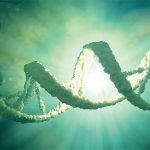
Funders respond to NASEM Gene Drive study
Funders of the National Academy of Sciences consensus study Gene Drives on the Horizon (2016) have published a response to the report in the December 2017 issue of Science. The study summarized "current understanding of the scientific discoveries related to gene drives and their accompanying ethical, legal, and social implications," and was co-authored by Dr. Jason Delborne, associate professor of science, policy and society in the College of Natural Resources and executive committee member of the GES Center....Continue reading "Funders respond to NASEM Gene Drive study"

Jason Delborne appointed to National Academies Forest Biotech Study Committee
Dr. Jason Delborne has been appointed to the National Academies of Sciences provisional committee on The Potential for Biotechnology to Address Forest Health, or Forest Biotech Study. The study will be looking at the potential uses of biotechnology to mitigate threats to forest tree health, identify ecological, ethical, and societal implications of using this technology in forests, and develop an agenda to address knowledge gaps in its application. ...Continue reading "Jason Delborne appointed to National Academies Forest Biotech Study Committee"
